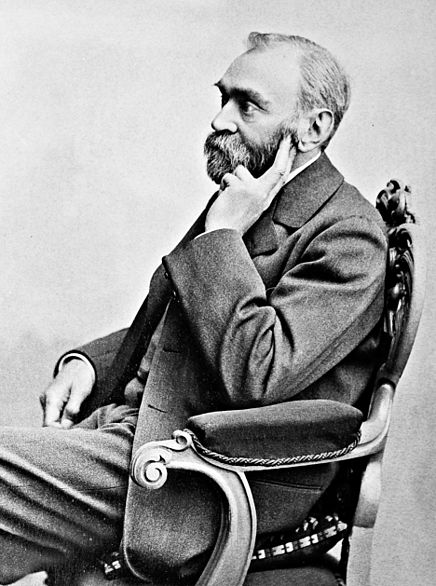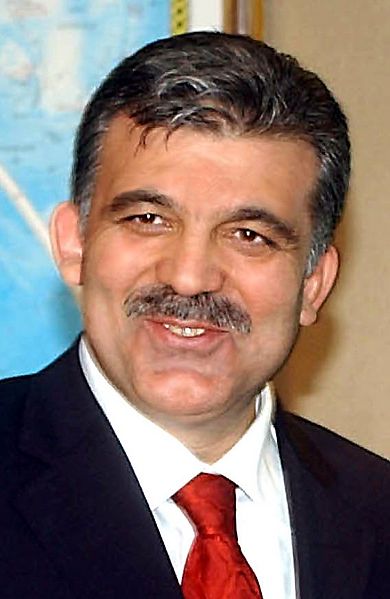 October 12th, 2007 – Former United- States vice- president Al Gore was awarded the Nobel Prize for peace along with the Intergov- ernmental Panel on Climate Change (IPCC). These two have won the award "for their efforts to build up and disseminate greater knowledge about man-made climate change and to lay the foundations for the measures that are needed to counteract such change". I would have written about something else yet I am appalled by the lack of criticism such an action has attracted.
October 12th, 2007 – Former United- States vice- president Al Gore was awarded the Nobel Prize for peace along with the Intergov- ernmental Panel on Climate Change (IPCC). These two have won the award "for their efforts to build up and disseminate greater knowledge about man-made climate change and to lay the foundations for the measures that are needed to counteract such change". I would have written about something else yet I am appalled by the lack of criticism such an action has attracted.The Nobel Peace Prize has always been awarded to an organisation or a person that has advanced, developed or protected what we call ‘peace’. Mr. Gore, apart from winning 2 Oscars for a methodologically questionable documentary, has been touring the world to inform and promote his environmentalist views and the studies he decides to use. I can respect his work since he believes in a cause and works very hard towards imposing his personal beliefs. I thus criticise the Norwegian parliament for awarding a prize for peace to people who talk about slowly melting glaciers and dying penguins. What’s next? Will we give the next ones to great recyclers, amazing scientologists, compelling evolutionists or astounding janitors? I understand that the word peace is malleable but this pushes the limits, especially considering to whom the same prize has been awarded in the past.
Alfred Nobel died in 1896, 5 years before the first prizes were awarded. A rich industrialist and inventor of dynamite, Nobel left a will stating that the peace prize should be given ‘to the person who shall have done the most or the best work for fraternity between the nations, for the abolition or reduction of standing armies and for the holding and promotion of peace congresses", and it has in the past…mostly.
Amongst the winners have been: Jean-Henri Dunant for the foundation of the Red Cross (1901), American President Woodrow Wilson for his participation and promotion of the of the League of Nations (1919), Cordell Hull for his responsibility in the creation of the United Nations (1945), George Catlett Marshall for his ‘Marshall Plan’ (an economic reconstruction plan for a war torn Europe) (1953), Canadian Prime Minister Lester Bowles Pearson for his creation of the Blue Helmet soldier force of the UN (1957), Dr. Martin Luther King Jr. for his pioneering of the non-violent civil rights movement of African-Americans (1964), Desmond Tutu for his strong and non-violent opposition to South-African apartheid (1984), Mikhail Gorbachev for his democratic policies within the Soviet Union and for his efforts of peace towards the West (1990) and Shirin Ebadi for her work for the liberation of women in Iran (2002). This illustrious list (and voluminous sentence) clearly depicts a prize that is quite secondary to the amazing legacy of these people’s work for peace in our time. Mr. Gore’s work…is not so much.
Very little criticism has been received by this topic since environmentalism is this decade’s ‘hot topic’. We sort of ran out of human issues in mainstream politics and in Hollywood (such as war in the 1910s-1950s civil rights in the 1950s-1960s, feminism in the 1970s-1980s, homosexual rights in the 1990s and 2000s) so we had to find something new to feel guilty about. With a lot of research, I was able to fin this quote by a spokesperson for the president of the Czech Republic, Vaclav Klaus: ‘He (Klaus) is somewhat surprised that Al Gore got the Peace Prize, because the relation between his activities and world peace is unclear and indistinct. It rather seems that Gore's questioning of the basic foundation stones of the current civilisation does not contribute to peace much.’ (BBC New Service). I am happy to see that I am not the only one that thinks it IS quite a leap to award our foremost humanitarian prize to an environmentalist. Furthermore, I think we need more reaction about this prize from Africa, Asia and Eastern Europe, regions without the stability and free time that we seem to have. Imagine being the President of Sudan, where a genocidal war has raged for years and where hundreds of diplomats have tried to negotiate peace and where the Red Cross risks their lives every day and where UN peace forces are being shot at despite their neutrality, and then imagine being told that Al Gore won the Nobel Peace Prize for telling the world that our SUVs will make the oceans rise… It would be enough for you to laugh or cry, whilst sitting in a bunker fearing for your life.
All in all, I congratulate Mr. Gore and the IPCC for their win and for the 1.5 million dollars that came with it (in all fairness, Gore donated his half to charity). I am just terribly disappointed that Nobel’s brainchild was used as an apparent political manoeuvre to promote certain ideas. I hear that next year’s nominees will include a man that says rocks have feelings, another who bombs zoos to liberate the animals and another that proved that masturbation makes Jesus cry. As always, I exaggerate and I know the Nobel Peace Prize was a passing piece of news that no one will remember in a week. Mr. Gore’s parade was too sunny; I just had to rain on it.







